- Jumlah paparan: 757
Pelajar Non Residen UMS Santuni Penghuni Pusat Rumah Anak Yatim, Baitul Hidayah Kudat
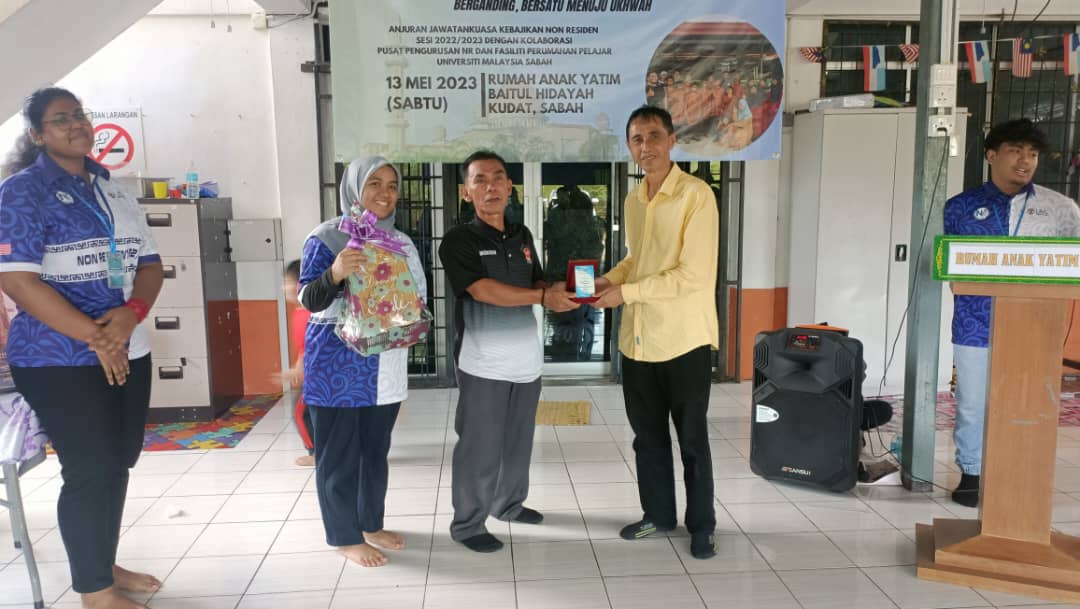 Semangat kesukarelawan dalam kalangan siswa perlu terus dipupuk sebagai asas kepada pembentukan warganegara yang prihatin, bertanggungjawab, dan saling bantu membantu tanpa mengira agama, kaum dan warna kulit.
Semangat kesukarelawan dalam kalangan siswa perlu terus dipupuk sebagai asas kepada pembentukan warganegara yang prihatin, bertanggungjawab, dan saling bantu membantu tanpa mengira agama, kaum dan warna kulit.
Justeru, Jawatankuasa Kebajikan Mahasiswa Non Residen (JAKMAS NR) Universiti Malaysia Sabah (UMS) Sesi 2022/2023 telah mengadakan program khidmat masyarakat di Pusat Rumah Anak Yatim, Baitul Hidayah Kudat baru-baru ini sebagai usaha berterusan dalam menyemai dan memperkukuh semangat kesukarelawan dalam kalangan pelajar universiti.
Program Tanggungjawab Sosial Korporat (CSR) itu turut mendapat kerjasama daripada Pusat Pengurusan Non Residen dan Fasiliti Perumahan Pelajar (PNRF).
Menurut Pengarah PNRF, Hasmi Hashim, program murni tersebut adalah menyokong kepada amanat dan fokus ke-11 Kementerian Pendidikan Tinggi (KPT) iaitu pemerkasaan pelajar melalui program-program pembangunan sahsiah seumpama itu.
“Ini juga menyahut seruan salah satu program utama di bawah KPT iaitu Semarak Siswa Madani atau juga dikenali sebagai S4S (Student for Society).
“Program ini juga bertujuan untuk menambah pengetahuan dan pengalaman pelajar dalam berinteraksi dengan masyarakat.
“Di samping itu, program ini juga dapat menekankan kepentingan ilmu pengetahuan dan pendidikan melalui pelbagai medium dalam kehidupan dan memberi pengalaman berkualiti kepada pelajar,” katanya.
“Bertemakan 'Berganding, Bersatu Menuju Ukhuwah’, program yang membabitkan kumpulan pelajar non residen itu diketuai Pengarah Program, Deanna Masoh.
Kehadiran pelajar NR di Rumah Anak Yatim Baitul Hidayah disambut ceria oleh pengurusan dan penghuni rumah anak yatim serta dibantu oleh para warden yang sentiasa ada di sepanjang program berlangsung.
Pengurus Rumah Anak Yatim, Baitul Hidayah, Awang Lahaji Hj. Rokimin turut merakamkan penghargaan kepada UMS khususnya PNRF atas usaha melaksanakan aktiviti kemasyarakatan di rumah tersebut.
Menurut beliau, kehadiran kumpulan pelajar dari UMS amat bermakna kerana itu merupakan kali pertama rumah anak yatim tersebut dikunjungi oleh pihak luar, selain turut mengharapkan program sedemikian dapat diteruskan lagi pada masa akan datang.
Timbalan Naib Canselor (Hal Ehwal Pelajar dan Alumni) UMS, Prof. Madya Dr. Raman Noordin turut menyokong program sahsiah seumpama itu dilaksanakan secara giat dan berterusan.
Hadir sama dalam program tersebut Yang Dipertua JAKMAS NR, Mohd Nazarruddin Zulkipli bersama-sama kakitangan PNRF UMS.



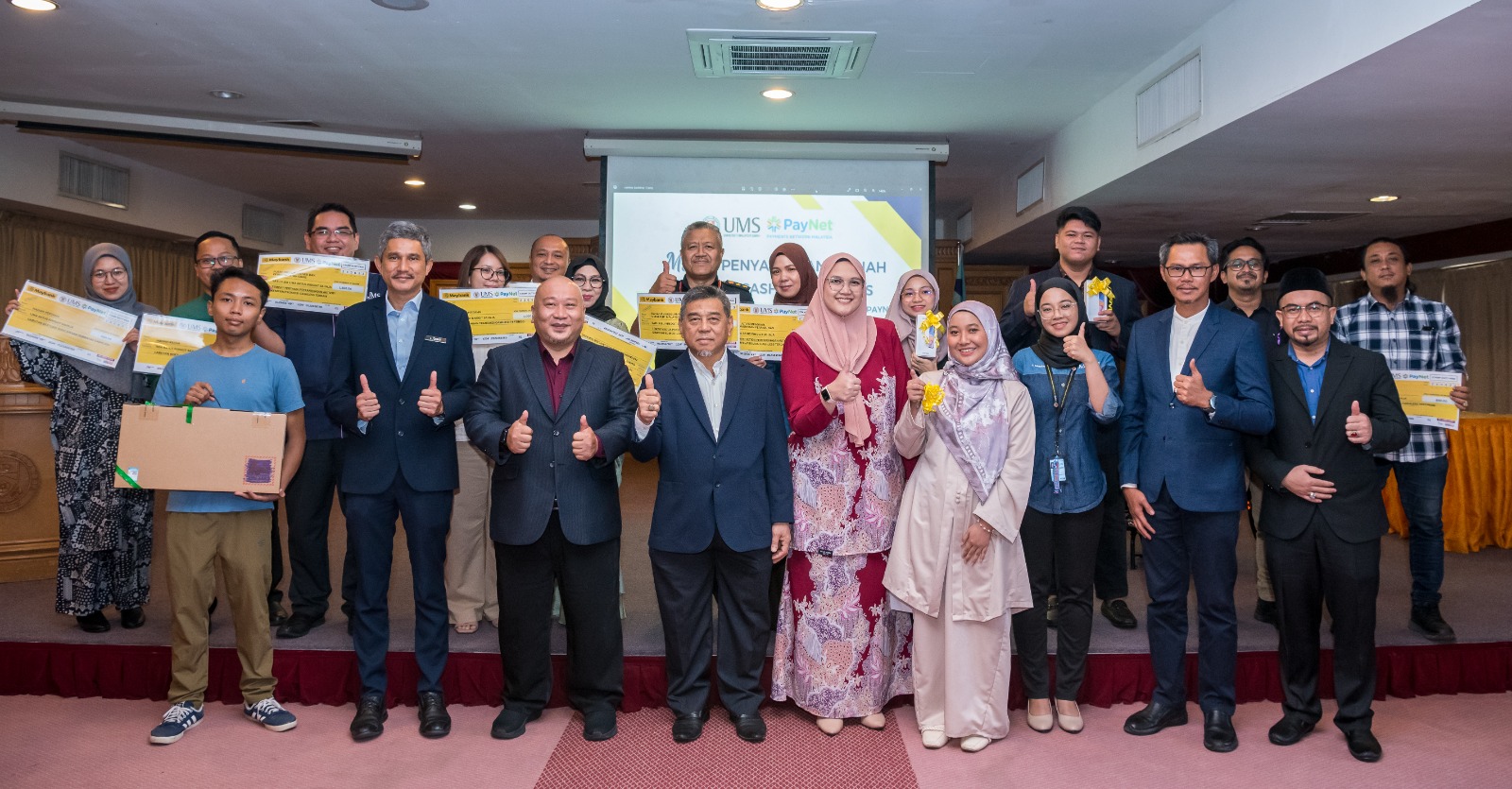 Universiti Malaysia Sabah (UMS) berhasrat untuk menjadikan kampusnya sebagai kampus tanpa tunai (Cashless Campus).
Universiti Malaysia Sabah (UMS) berhasrat untuk menjadikan kampusnya sebagai kampus tanpa tunai (Cashless Campus).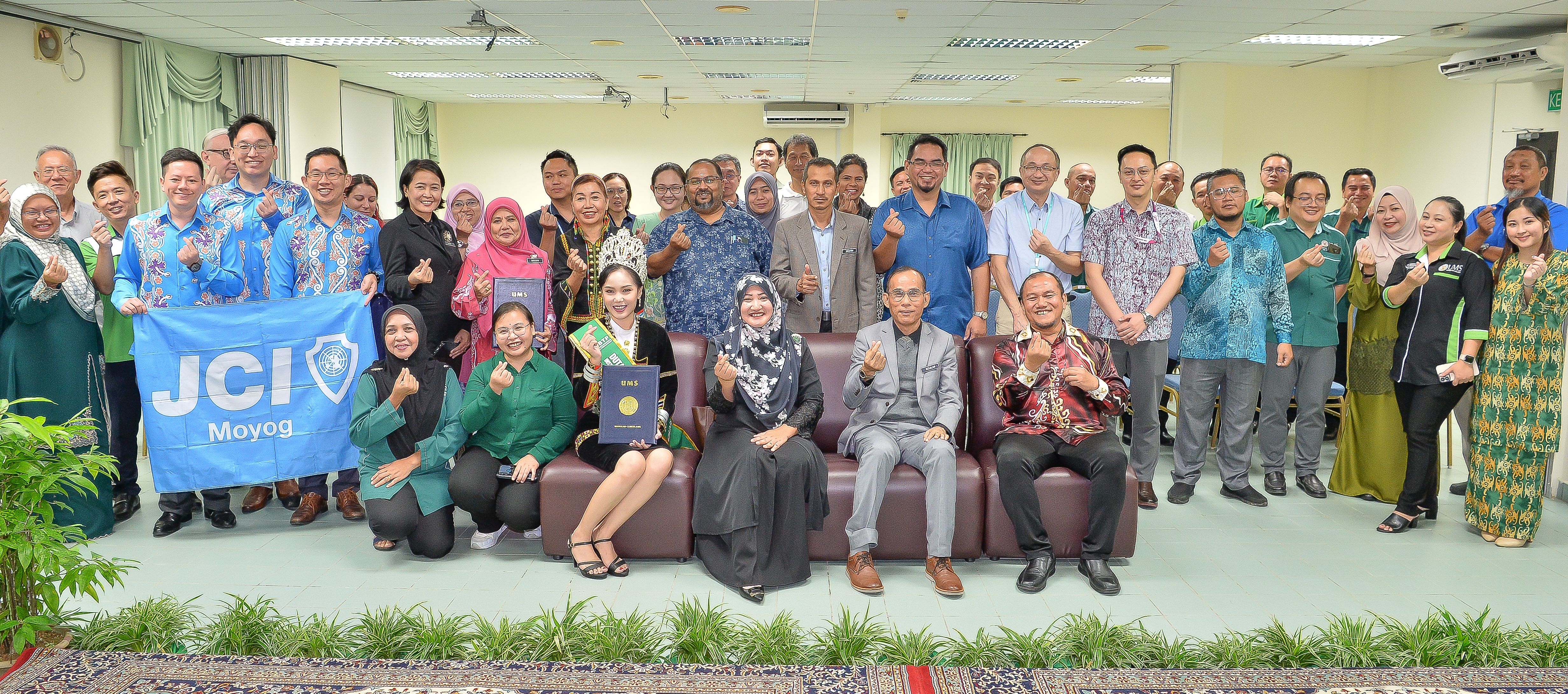 Universiti Malaysia Sabah (UMS) melalui Institut Biologi Tropika dan Pemuliharaan (IBTP) terus memperkasakan usaha dalam melibatkan semua pihak termasuk industri dan komuniti dalam aspek pemuliharaan biodiversiti.
Universiti Malaysia Sabah (UMS) melalui Institut Biologi Tropika dan Pemuliharaan (IBTP) terus memperkasakan usaha dalam melibatkan semua pihak termasuk industri dan komuniti dalam aspek pemuliharaan biodiversiti.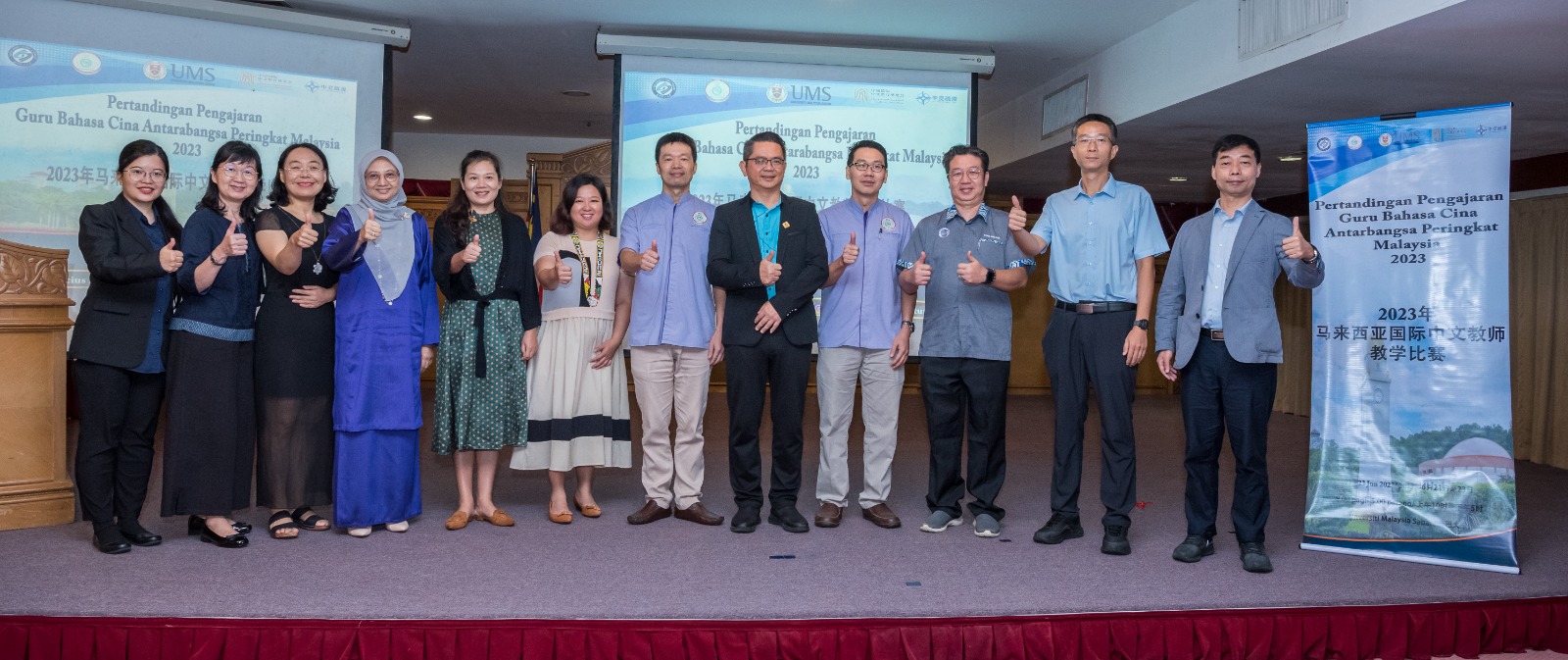 Universiti Malaysia Sabah (UMS) dipilih sebagai tuan rumah bagi penganjuran pertama Pertandingan Pengajaran Guru Bahasa Cina Antarabangsa Peringkat Malaysia 2023.
Universiti Malaysia Sabah (UMS) dipilih sebagai tuan rumah bagi penganjuran pertama Pertandingan Pengajaran Guru Bahasa Cina Antarabangsa Peringkat Malaysia 2023.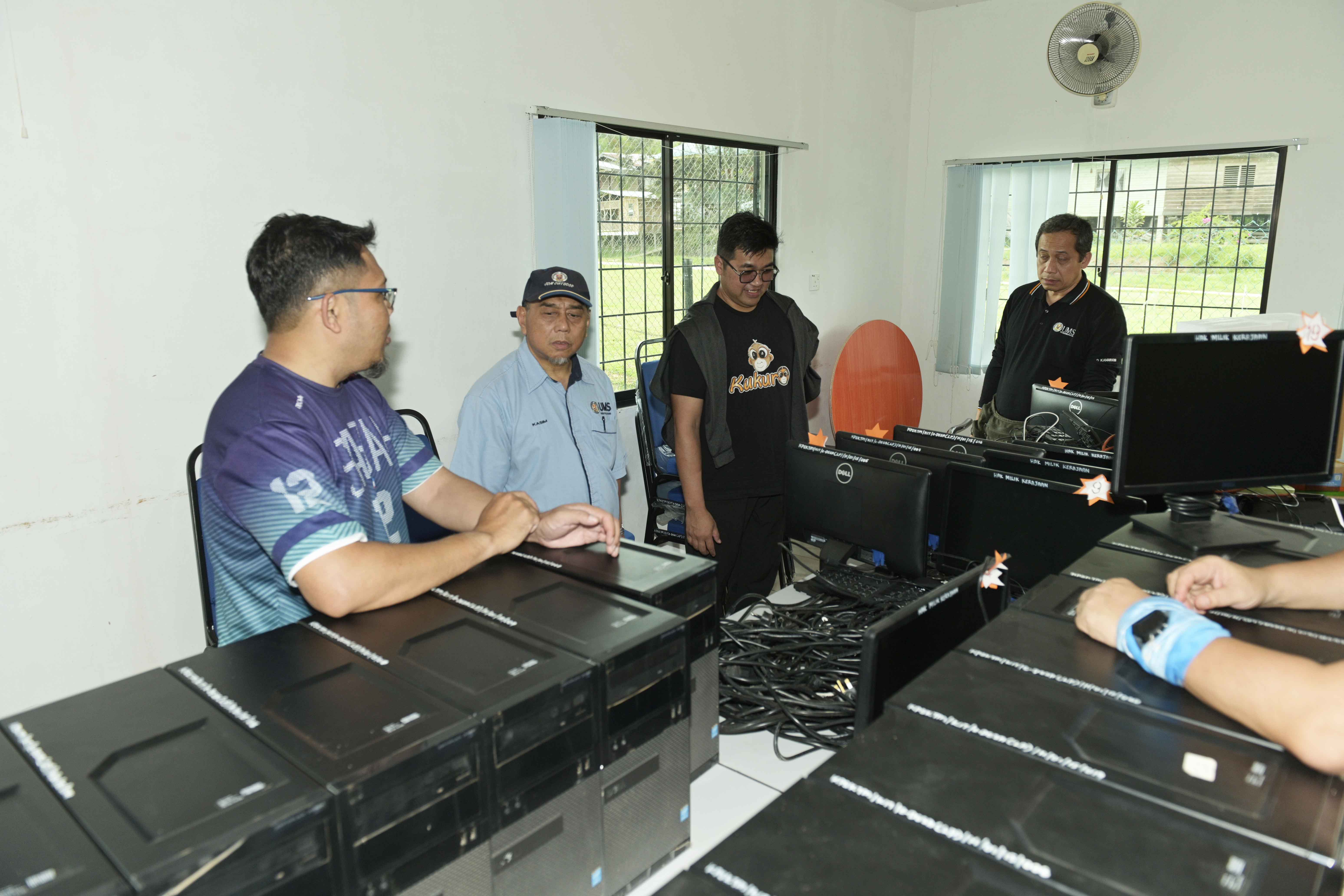 Program Rentas Borneo 2023 yang berlangsung di Kampung Long Pasia, Sipitang selama lima hari melibatkan 10 projek pemindahan ilmu berjaya dilaksanakan warga Universiti Malaysia Sabah (UMS), baru-baru ini.
Program Rentas Borneo 2023 yang berlangsung di Kampung Long Pasia, Sipitang selama lima hari melibatkan 10 projek pemindahan ilmu berjaya dilaksanakan warga Universiti Malaysia Sabah (UMS), baru-baru ini.